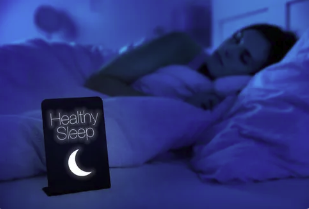In the grand orchestra of life, sleep and exercise are two key players that harmonize to create a symphony of well-being. The rhythm of regular exercise and the melody of quality sleep are intertwined, each influencing the other in a beautiful, symbiotic relationship. This article will explore the fascinating ways in which regular exercise can enhance the quality of your sleep, leading to a healthier, happier you.
Firstly, let’s delve into the realm of circadian rhythms. These are our internal biological clocks that regulate our sleep-wake cycle. Regular exercise, particularly when done in the morning or afternoon, can help reset these rhythms, leading to improved sleep onset and quality. The exposure to natural light during outdoor exercise also aids in this process, reinforcing our body’s natural day-night cycle.
Next, we waltz into the world of body temperature. Exercise naturally increases our body temperature. A post-exercise drop in temperature can help to initiate sleep. This is akin to the natural drop in body temperature we experience in the evening as we prepare for sleep. By exercising, we essentially mimic this process, helping our bodies recognize that it’s time to rest.
The third movement in our symphony is stress reduction. Regular physical activity is a proven stress-buster. It stimulates the production of endorphins, our body’s natural mood elevators, which can help us feel more relaxed and less anxious. This reduction in stress and anxiety can make it easier to fall asleep and stay asleep throughout the night.
Our fourth and final movement is the impact of exercise on sleep architecture. Sleep architecture refers to the structure and pattern of sleep, which includes both REM (rapid eye movement) and non-REM sleep. Regular exercise can increase the amount of time spent in deep, restorative sleep, the most physically restorative sleep phase. Deep sleep helps to boost immune function, support cardiac health, and control stress and anxiety.
In conclusion, regular exercise is a powerful conductor, orchestrating a range of physiological changes that can lead to improved sleep quality. It’s important to note, however, that timing is key. Exercising too close to bedtime can have the opposite effect, making it harder to fall asleep due to the stimulating effects of exercise. As a general rule, try to finish exercising at least three hours before you plan to retire for the night.
So, lace up those sneakers, dive into that swimming pool, or unroll that yoga mat. Your symphony of sleep is waiting to be played, and regular exercise is ready to take the baton.
>>>>This Device Can Help Improve Mobility, Rest, Quality of Life, & More<<<<

